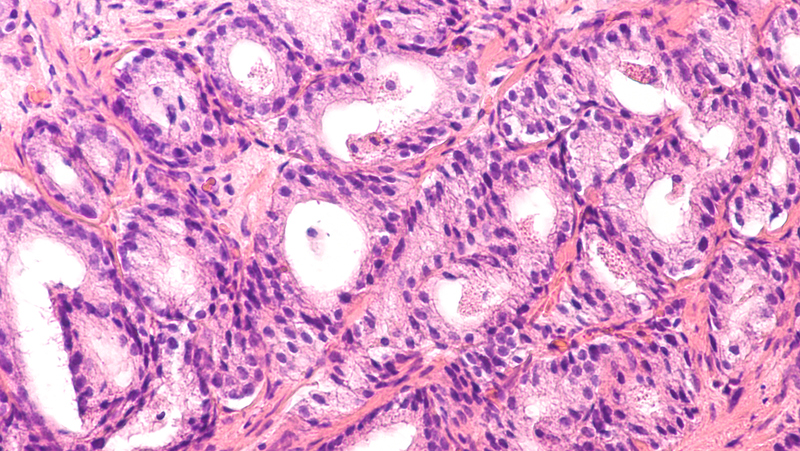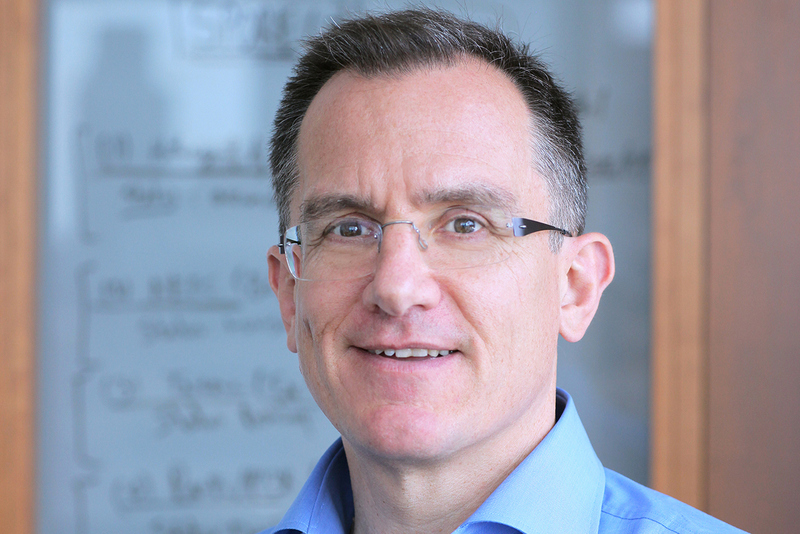Cancer Research in Bern: Analysing and finding solutions to treatment resistance
A number of types of cancer are prone to adapt to targeted treatment, enabling resistance. Prof. Mark Rubin, Department for BioMedical Research and Bern Center for Precision Medicine, together with colleagues from the Weill Cornell Medicine and the University of Manchester have now published a ‘Perspective’ in the journal Molecular Cell. Using two different types of cancer as examples, they explore the challenges of a resistance with the goal of diminishing the most aggressive forms of cancer. The paper shows the importance of carrying out cancer research that is networked and coordinated across disciplines, as explained by the Tumorzentrum Bern (University Cancer Center Inselspital, UCI).
A new publication from the Department for Biomedical Research and the Bern Center for Precision Medicine at the University of Bern and Inselspital, University Hospital Bern explains the fundamental science behind the development of resistance in various types of cancers. It discusses the established and potential roles of epigenetic, genomic, and microenvironmental perturbations as drivers of resistance. Furthermore the authors stipulate that a better understanding of the interplay of these drivers may be necessary to devise better therapeutic approaches for both de novo and targeted therapy-associated small cell lung and prostate cancers.
The development of resistance against treatment
Prof. Rubin and colleagues describe how cancer cells can adapt under the pressure of targeted therapy. The surviving cells may now have a different appearance and are no longer sensitive to the initial therapies. This process is referred to as lineage plasticity‘ and results in a type of cancer which is no longer controlled by the original oncogenic driver, leading to treatment failure.
Two good examples of this are observed in non-small cell lung cancer (NSCLC) and advanced metastatic prostate cancer, where lineage plasticity is seen when the adenocarcinoma phenotype undergoes transformation into a neuroendocrine (NE) disease. The precise molecular mechanisms involved in this form of NE transdifferentiation are not yet known. In small cell lung cancer (SCLC), plasticity from NE to non-NE phenotypes is believed to be controlled by NOTCH signalling. The Notch-signal- pathway is well known since it plays a role in the embryonal tissue development.
New strategies
Prof. Mark Rubin comments: “The existing treatment options are very limited when it comes to the treatment of metastatic small cell prostate and lung cancer.” He suggests that “the most reasonable approach to addressing lineage plasticity would be to develop new biomarkers and drugs to recognize and treat patients at risk before any changes occur.” The publication introduces some new approaches to address this strategy, focusing on simple and complex genomic alterations, epigenetic reprogramming and genomic instability secondary to alterations in the tumor microenvironment that may enable these lethal phenotype transitions.
Bern is well placed for cancer research
An in-depth analysis of the development of resistance in prostate and lung cancer clearly shows the importance of working in a networked, interdisciplinary way in cancer research. Prof. Adrian Ochsenbein, Chairman and Physician-in-Chief of the Department of Medical Oncology, is emphatic: “The issues that we need to work on range from oncological and haematological questions to the methods of individualised precision medicine and data analysis using deep learning. This demonstrates the importance of coordinated, networked cancer research.
This area is so complex that only highly networked, international teams of specialists can succeed in tracing new and more effective forms of therapy that can also be made available to patients.” And Prof. Daniel Aebersold director of Tumorzentrum Bern UCI adds: “As a research location, Bern is well placed to deal with the complexity of the work involved in cancer research. The Bern Center for Precision Medicine was founded in 2019 and extremely advanced DNA sequencers are in use at the Genomic Center Bern.
From early 2021, the University will also have the Center for Artificial Intelligence in Medicine (CAIM), which will bring together a large number of existing projects and provide even better support to future projects. Tumorzentrum Bern UCI will also have the role of supporting research that is conducted in proximity to patients, with the aim of improving treatment outcomes and promoting both coordination and networking.”
Experts:
* Prof. Dr. med. Mark Rubin, Director Department for BioMedical Research (DBMR), University of Bern and Bern Center for Precision Medicine, University of Bern and Inselspital, University Hospital Bern
* Prof. Dr. med. Daniel Aebersold, Director, Tumorzentrum Bern UCI (University Cancer Center Inselspital), Inselspital, University Hospital Bern
* Prof. Dr. med. Adrian Ochsenbein, Chairman and Physician-in-Chief, Department of Medical Oncology, Inselspital, University Hospital Bern
Links:
* DBMR: https://www.dbmr.unibe.ch/
* BCPM: BCPM: https://www.bcpm.unibe.ch/
* UCI: https://www.tumorzentrum.insel.ch/de/
* Publication: https://www.sciencedirect.com/science/article/pii/S1097276520307401?via%3Dihub
Insel GruppeDie Insel Gruppe ist die schweizweit führende Spitalgruppe für universitäre und integrierte Medizin. Sie bietet mittels wegweisender Qualität, Forschung, Innovation und Bildung eine umfassende Gesundheitsversorgung. Die sechs Spitäler der Insel Gruppe (Inselspital, Aarberg, Belp, Münsingen, Riggisberg und Tiefenau) nahmen im Geschäftsjahr 2018 rund 822 000 ambulante Konsultationen vor und behandelten rund 65 000 stationäre Patientinnen und Patienten. Die Insel Gruppe beschäftigt knapp 11 000 Mitarbeitende aus 100 Nationen. Sie ist Ausbildungsbetrieb für eine Vielzahl von Berufen und die wichtigste Institution für die Weiterbildung von jungen Ärztinnen und Ärzten. Mehr Information: http://www.inselgruppe.ch |
Department for Biomedical Research (DBMR)The Department for BioMedical Research (DBMR) of the Faculty of Medicine of the University of Bern, led by Prof. Dr. med. Mark Rubin, was established in 1994 by the University of Bern and the Inselspital (Bern University Hospital). To realize its mission to bridge the gap between bench and bedside, the DBMR promotes an integrative perspective to clinical research with a strong emphasis in the development of translational approaches, the use of omics and other cutting-edge technologies, and extensive interaction and collaboration between laboratory-based and patient-oriented clinical research. The DBMR is also committed to fostering the careers of young academics. |
Bern Center for Precision Medicine (BCPM)The Bern Center for Precision Medicine (BCPM) was founded in 2019 on the initiative and with the support of the Canton, the University of Bern and Inselspital, Bern University Hospital. The BCPM is active in research, networking and training. The center is dedicated to promoting approaches in precision medicine by supporting research and development of medical diagnoses and therapeutic methods. It offers an interdisciplinary network for researchers and clinicians from various fields and faculties and unites more than 70 members. Through graduate schools, the BCPM will also provide the best possible education for the next generation of care takers and researchers. As a result, it is securing the long-term benefits that precision medicine brings to healthcare. More information: https://www.bcpm.unibe.ch |
Source: Insel Gruppe AG
2020/12/09



